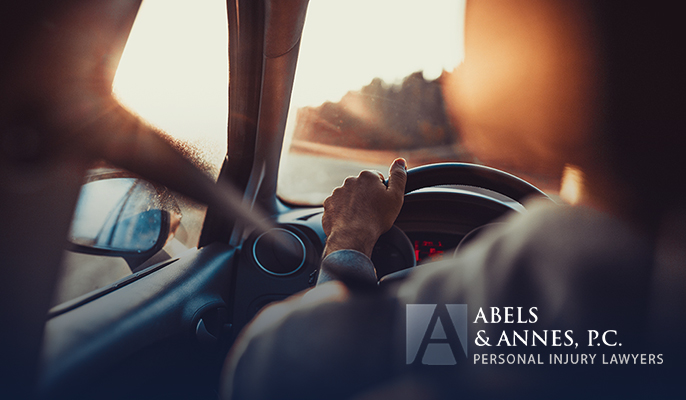
Injuries From an Auto Accident
Your claim’s value depends on the injuries you receive in an accident. You might escape with minor injuries, or you could have suffered catastrophic injuries; common auto accident injuries include:
- Traumatic brain injuries;
- Head and neck injuries;
- Back and spine injuries;
- Simple and/or compound fractures;
- Burns;
- Torn muscles;
- Pulled muscles, strains, and sprains; or
- Scrapes, cuts, and bruises.
Damages
When you suffer from injuries and losses from a car accident, the defendant and/or his or her insurance company might have to pay you damages. Illinois residents can receive economic damages, non-economic damages, and punitive damages following a car accident claim.Economic Damages
Special damages, or economic damages, are meant to make you whole again or to put you in a position that you would be in if the accident had not happened. Since you cannot wave a wand and make injuries disappear, the only way to do that is with compensation. Economic damages recover money paid for materials and services—they have a specific dollar amount attached to them, and include:- Past medical expenses attributed to the accident.
- Future medical expenses for injuries you sustained in the accident, including upcoming surgeries and follow-up appointments.
- Expenses for therapy, including physical therapy, cognitive therapy, and psychological therapy. You might need psychological therapy if you suffer from PTSD because the accident was particularly grisly or involved a death, or because you are suffering from depression because of long-term or permanent injuries.
- Past lost wages for time you could not work due to your car accident injuries.
- Future lost wages for the time you will lose from work because of long-term or permanent injuries. Even if you can eventually work, but you cannot do the job you once did, you might get compensation for the difference in salary, if your new line of work pays less than your old line of work.
- The replacement or repair of your vehicle and other personal property that was damaged or destroyed in the accident.
- Any medical aids you might need, including but not limited to a wheelchair, walking aids, soft casts, braces, and other aids.
- Funeral and burial expenses if you lost a loved one in the accident.
Non-Economic Damages
General damages, or non-economic damages, also attempt to make you whole by replacing subjective losses with compensation. Non-economic damages might include:- Pain and suffering, usually awarded if your injuries are long-term or permanent. Long-term injuries do not have a specific definition, but the Social Security Office considers an injury long-term if doctors expect recovery to take longer than a year.
- Disfigurement, if you suffer from permanent disfiguring injuries.
- Loss of consortium, if you can no longer have a physical relationship with your spouse.
- Loss of companionship, if you cannot take part in family events and outings, including spending time with your children and your spouse.
- Loss of use of a body part or body function, such as the permanent loss of use of a hand or the loss of your eyesight.
- Inconvenience, if you have to hire someone to do daily chores that you would normally do yourself, including cooking, cleaning, mowing the lawn and home maintenance.
Punitive Damages
Unlike general and special damages, the court does not order punitive damages to make you whole. This type of compensation is used as a punishment to the defendant, and is sometimes called exemplary damages. These damages are rare, and reserved for particularly malicious conduct; the defendant’s actions that caused the accident must be grossly negligent, such as reckless speeding, driving under the influence, or driving while distracted. You might also receive punitive damages if the defendant’s actions were intentional—if the defendant purposefully ran you off the road because he or she did not like something you did at some time in the past, for example. As the plaintiff, you do have to ask the court for punitive damages, and you also have to prove that the defendant’s actions were intentionally malicious or grossly negligent. It is a complicated process to get the court to order punitive damages, let alone prove a claim for ordinary damages; but, having an experienced car accident attorney who can advocate for you makes the process easier.Common Causes of Car Accidents
Car accidents occur for many different reasons. However, the top five causes of car accidents include distracted driving, driving under the influence, speeding, reckless driving, and not accounting for poor weather conditions. Distracted driving has been a problem for years now, but many people don’t seem to think there’s anything wrong with taking a phone call or answering a text while stuck in traffic, or even when speeding down the highway. Distracted driving can also include eating while driving, talking to a passenger, and anything that distracts you from keeping your eyes on the road. Drinking and driving, or driving under the influence of drugs can cause severe accidents and injuries, as an impaired driver can have a lot of trouble controlling their vehicle. Not only will they be liable for your injuries, but they will also likely face criminal charges. Speeding causes accidents, as it’s harder to stop your vehicle or account for another person’s mistakes when you’re driving too fast. If someone pulls out in front of you, or breaks quickly, your time to react is much less if you’re speeding. Drivers who drive aggressively in poor weather conditions like rain or snow are also more likely to get into accidents. Driving in poor weather conditions usually means driving slower to account for any skidding or sliding your car may do. If one drives too fast in bad weather, they may be liable for an accident.How Does a Car Accident Case Work?
Accident Occurs
Your case begins when your accident occurs. After your accident occurs, you may be rushed to the hospital depending on the severity of injuries. If your injuries are mild enough to stick around, you may want to perform an initial investigation of your own. For example, take pictures of your own injuries, your car, the opposing parties car, and the location. You’ll also want to gather the contact information of any witnesses nearby. Finally, contact the authorities and make a police report.Treatment
You should receive medical treatment as soon as possible after your accident occurs. Any delay in medical treatment may look suspicious to the at-fault party’s insurance company. Be sure to let your doctor know that your injuries are because of a car accident so they can note it in your medical file. You’ll want to make sure that you follow their treatment plan, and receive any follow up care that may be necessary.Hire an Attorney
Hiring an attorney is the best decision that you can make for your car accident case. A good attorney can help to ensure that you get the compensation that you deserve for your injuries. They’ll negotiate with insurance companies on your behalf and represent you if your case goes to trial. They’ll also check in on you to make sure that you’re following your medical treatment plan. When looking for an attorney, you’ll want to find one that has experience with cases like yours as well as a proven track record receiving high settlements and winning cases.File a Claim
After your injuries have been treated and you’ve found a lawyer, you’ll want to work with your attorney to file a claim with both your and the defendant’s car insurance company. This will initially help you to receive compensation to fix your car, or even compensation for the total loss of your vehicle. If your insurance company pays out, they will then contact the at-fault party’s insurance company for subrogation.Don’t Speak or Sign Without Your Lawyer
Soon after the accident, you may hear from the at-fault party’s insurance company. It’s important that you don’t give them a recorded statement or sign any waivers. They may try to offer you a quick lowball settlement, but don’t take it. It’s best to let them know that you have a lawyer, take their name, number and claim information, and refer them to your attorney’s office.Investigation
After an initial consultation with your attorney, they will begin an investigation into your medical treatment and the liability of the accident. They’ll look at what the cause of the accident may have been. This could include speaking to witnesses or looking at the police report filed for your accident. They’ll order your medical records and medical bills to submit to the insurance company.Settlement Demand
Once your treatment is complete and bills and records are obtained, your attorney will then prepare and submit a settlement demand to the at-fault party’s insurance company. The insurance company will typically review and return with a first offer, and negotiations will proceed from there. Negotiations typically last anywhere from a week to a few months. These negotiations are often done by phone, through email or regular mail, but not usually in person. Insurance companies want to avoid taking your case to trial, but they also may try to lowball you, offering a small settlement at first. A good attorney will either negotiate a better settlement or file a lawsuitSettlement or Lawsuit
If you receive a settlement offer that you are happy with, your case will resolve and you will receive the settlement money. However, if you and your attorney do not receive a fair offer, your case will be brought to court.Discovery
Before trial, an investigation period called discovery occurs. This period of time allows both sides to further investigate the accident, looking into police reports, medical records, expert reports, and even speaking with witnesses and each other. There will be written and oral discovery that will typically include interrogatories and depositions, along with any necessary motion practice.Mediation and Pre-Trial Conferences
The parties may attempt to reach a settlement by mediation or pre-trial conference before the trial. A mediator or judge will work with the two sides. The mediator or judge will try to encourage a settlement agreement. If this does not occur, the case will continue to move forward to trial. Many cases, however, are settled during this time.Trial
If your case goes to trial, both sides will have the time to present their cases. They’ll be able to introduce evidence that was found during the discovery period as well as interview any witnesses as well as either party involved in the accident. The judge or jury will then decide who was liable for the accident and award the compensation that they see fit.Contact an Experienced Attorney
If you suffer from injuries from a car accident, a car accident lawyer can help you understand your options, and help create a plan for moving forward for you and your loved ones. Our talented attorneys are ready to help you obtain the compensation you deserve for your case. For more information, please contact us online or at (312) 924-7575.Abels & Annes, P.C. 100 N LaSalle St #1710 Chicago, IL 60602 (312) 924-7575

